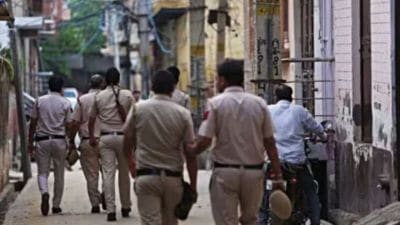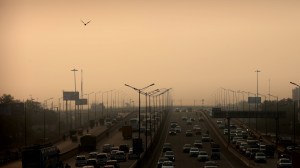Stay updated with the latest - Click here to follow us on Instagram
Why TikTok escaped Nepal’s social media ban and the list of sites that went dark
Nepal's Ministry of Communications and Information Technology said the firms were given seven days to comply with a court order mandating registration but did not meet the deadline.
 Riot police clash with the protesters outside the Parliament building in Kathmandu, Nepal, Monday, Sept. 8, 2025. (AP Photo/Niranjan Shrestha)
Riot police clash with the protesters outside the Parliament building in Kathmandu, Nepal, Monday, Sept. 8, 2025. (AP Photo/Niranjan Shrestha)Nepal has imposed one of its toughest internet restrictions yet, blocking access to more than two dozen social media platforms, including Facebook, Instagram, WhatsApp, X, Reddit, LinkedIn, Pinterest and Signal. The move came after the companies failed to register with authorities under new regulations aimed at monitoring online activity.
This led to spiralling protests in capital Kathmandu and other parts of the country, mainly by young people, dubbed Generation Z. Curfew has been imposed, Army has been deployed and in the demonstrations 14 people were killed and over a hundred left injured.
Nepal’s Ministry of Communications and Information Technology said the firms were given seven days to comply with a court order mandating registration but did not meet the deadline. A notice that followed directed internet service providers to deactivate access to the platforms.
How TikTok evaded the ban
TikTok stood out as the only major global platform still accessible in Nepal. Unlike its competitors, the Chinese-owned app completed the mandatory registration process within the stipulated period, agreeing to share company details with the government and accept local oversight.
Officials said this compliance ensured TikTok was not included in the ban list. The app had previously faced a nine-month suspension in 2023 over concerns of hate speech and cybercrime but was reinstated once it agreed to follow government rules.
Platforms Affected
The ban covers 26 popular sites and messaging apps. Among the most widely used platforms now inaccessible are:
- X
- Signal
Only five companies complied with the registration order, and TikTok is the largest among them.
The blanket blackout has disrupted businesses and Nepal’s tourism industry, which rely heavily on social media for outreach and bookings. It has also affected millions of Nepali families, many of whom use messaging apps to stay connected with relatives working abroad.
The decision has sparked criticism from press freedom groups, who argue the ban amounts to censorship. Protesters on Kathmandu’s streets have accused the government of using “compliance” as a pretext to stifle free speech while sparing platforms that are more cooperative with state oversight.






- 01
- 02
- 03
- 04
- 05

























